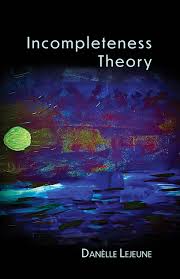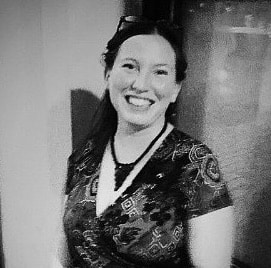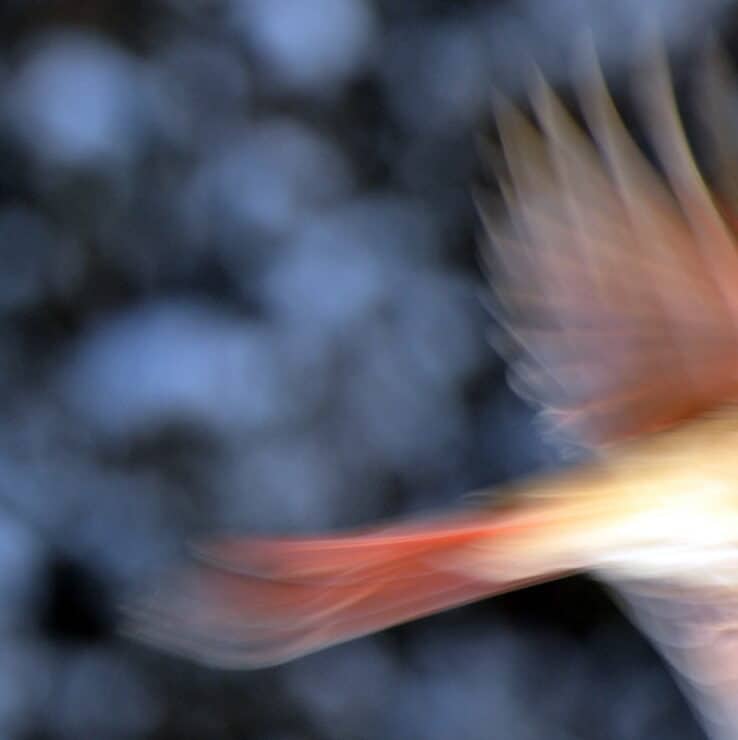
Poetry meets science in Danelle Lejeune’s new chapbook
Can you mix poetry, science, and humor, not only in one poetry collection but in most of the poems of that collection?
In Incompleteness Theory: Poems, poet Danelle Lejeune shows not only that it can be done, but that it can be done successfully. The first poem in her new chapbook has a title that may be my favorite poem title of the year: “Scientists Found Ripples in Space and Time And You Have to Buy Groceries.” That humming universe, she says, is really that broken hot water heater.
Yes, there’s science here, science as only a poet can describe it. You’re experiencing deep seismic shifts within. Your inaccurate fault lines are shattering your internal compass. The universe gets tangled around your neck, while asteroids are wrapping chains around Mars and Earth. Mosquitoes are superior to humans. A first meeting at night becomes a lunar eclipse. And did you know there is couples therapy for bulldozers? And if want to take it all to the next level, you’ve got the astrophysics of victimology.
This sounds a little crazy, but when you read the poems, you soon discover that neither the poems nor the poet is crazy. Instead, what Lejeune is doing is using science and scientific terms as a framework to explore life and our humanness. And beneath the comedy (and the fun) there is an earnest seriousness. Even in a poem that is about a single moment.
Constellation

how I always imagined the glittering
morning dew or early frost
when the whole world sparkles like
a dream, even the brown, melting
gutter slush, even the dented trash cans,
a dead squirrel zapped by the transformer,
icicles hanged for their crimes from the roofline.
I know the frozen daggers are caused by warmth,
the too-hot wood stove, the draughts escaping
like ghosts sliding up the attic stairs.
But here in the doorway between
steaming kitchen and dwindling woodpile,
I breathe out glass shards, spirits,
a constellation of coffee and stale morning breath.
A stellation, a constant.
A dying star.

Danelle Lejeune
Lejeune may have a unique biography; I for one would like to know how she went from pig farming in Iowa to poetry and photography in Georgia. In the meantime, it’s sufficient to know that her work has been published in numerous literary magazines and journals, including River Heron Review, Whale Road Review, American Poetry Review, Panorama Journal of Travel, Red River Review, and The Nottingham Review. She even wrote an article for House Beautiful. Her poems have also won several awards and recognitions. She lives in Georgia with her family. (And I’d still like to hear about the pig farming, which she teasingly explains concerns a 14-foot-long alligator, a strange Czech man in a bar in Minneapolis, and “a pinch of Midwestern farm crisis.”)
We live in an age when science occupies the place of authority that religion once did. Scientists are often considered in the same way we once revered priests. Follow the science! Lejeune might respond to that with “Which science is that? The science of my grocery list? The science that helps me mathematically model birdsong? The set theory that allows me to mend the broken hearts of my children?”
Yes, that science.
I loved this collection.
Photo by Mark Round, Creative Commons, via Flickr. Post by Glynn Young.
How to Read a Poem uses images like the mouse, the hive, the switch (from the Billy Collins poem)—to guide readers into new ways of understanding poems. Anthology included.
“I require all our incoming poetry students—in the MFA I direct—to buy and read this book.”
—Jeanetta Calhoun Mish
- “Your Accent! You Can’t Be from New Orleans!” - October 9, 2025
- Poets and Poems: Donna Vorreyer and “Unrivered” - October 7, 2025
- Poet Sidney Lanier and the Lost Cause - October 2, 2025


Leave a Reply